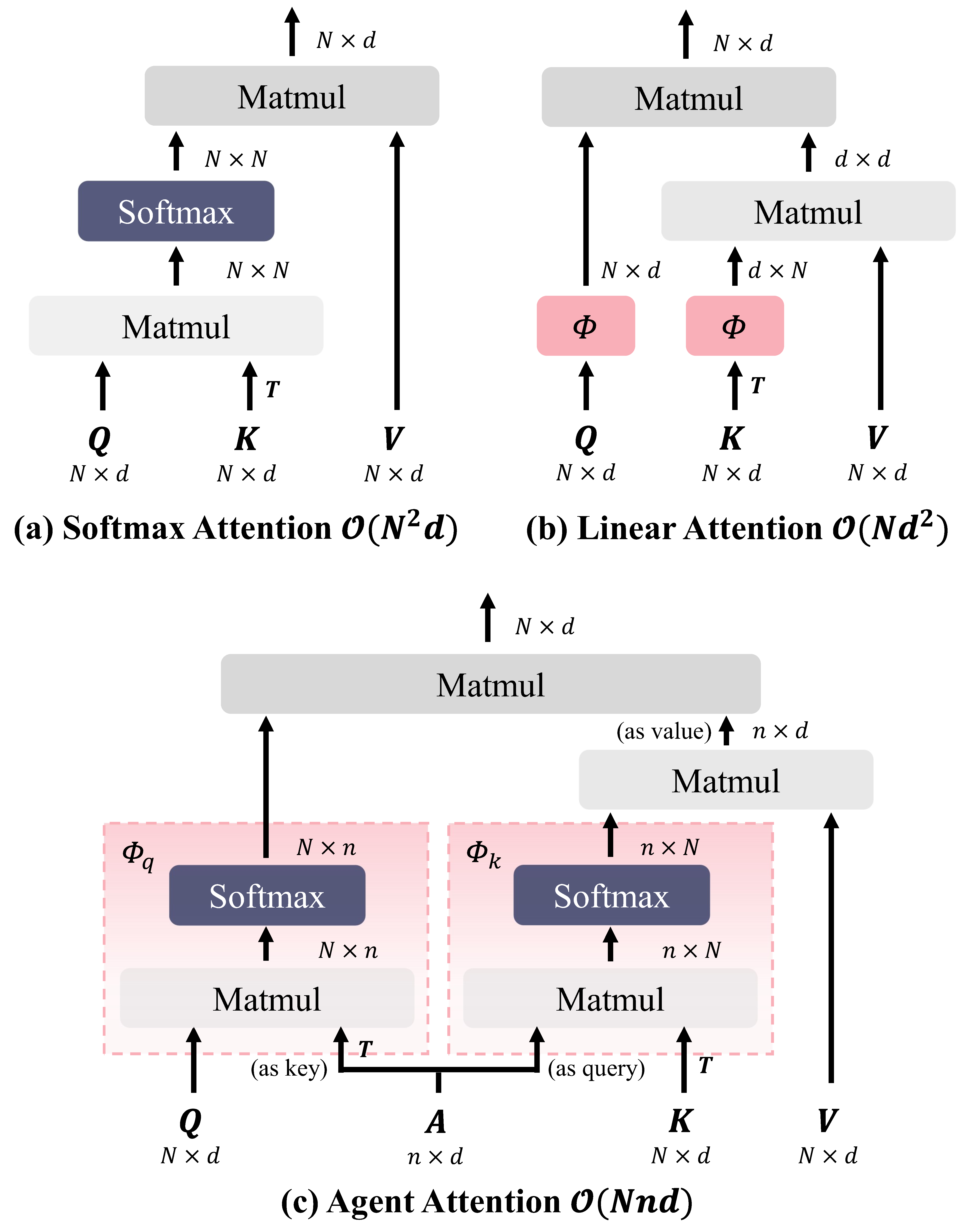Agent Attention: On the Integration of Softmax and Linear Attention
The attention module is the key component in Transformers. While the global attention mechanism offers high expressiveness, its excessive computational cost restricts its applicability in various scenarios. In this paper, we propose a novel attention paradigm, Agent Attention, to strike a favorable balance between computational efficiency and representation power. Specifically, the Agent Attention, denoted as a quadruple $(Q, A, K, V)$, introduces an additional set of agent tokens $A$ into the conventional attention module. The agent tokens first act as the agent for the query tokens $Q$ to aggregate information from $K$ and $V$, and then broadcast the information back to $Q$. Given the number of agent tokens can be designed to be much smaller than the number of query tokens, the agent attention is significantly more efficient than the widely adopted Softmax attention, while preserving global context modelling capability. Interestingly, we show that the proposed agent attention is equivalent to a generalized form of linear attention. Therefore, agent attention seamlessly integrates the powerful Softmax attention and the highly efficient linear attention. Extensive experiments demonstrate the effectiveness of agent attention with various vision Transformers and across diverse vision tasks, including image classification, object detection, semantic segmentation and image generation. Notably, agent attention has shown remarkable performance in high-resolution scenarios, owning to its linear attention nature. For instance, when applied to Stable Diffusion, our agent attention accelerates generation and substantially enhances image generation quality without any additional training. Code is available at https://github.com/LeapLabTHU/Agent-Attention.
PDF Abstract






 ImageNet
ImageNet
 MS COCO
MS COCO